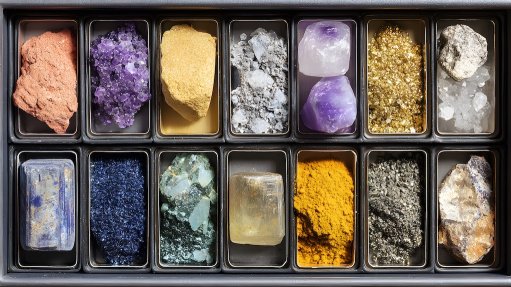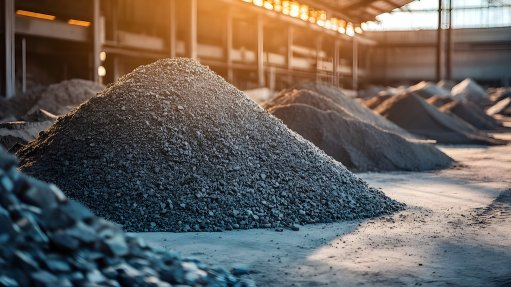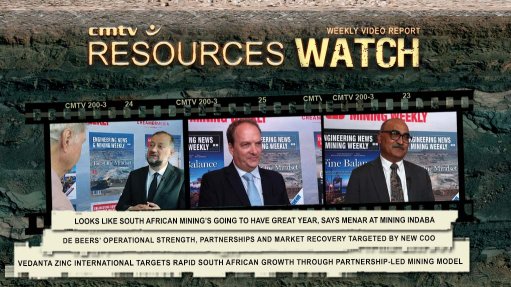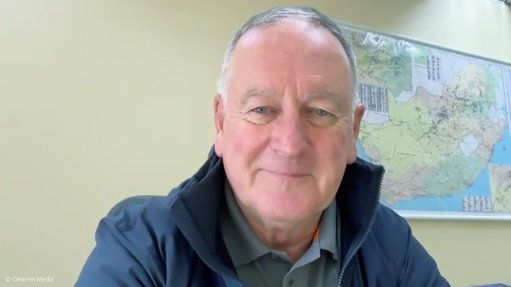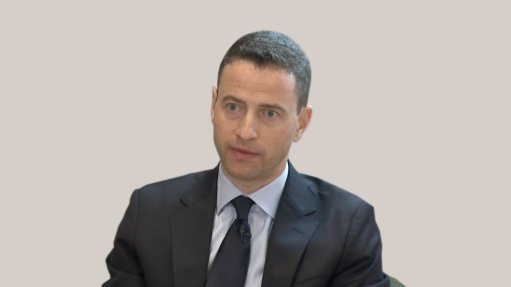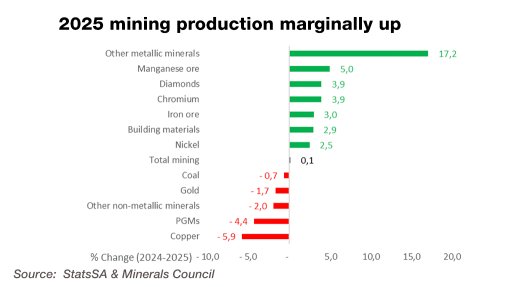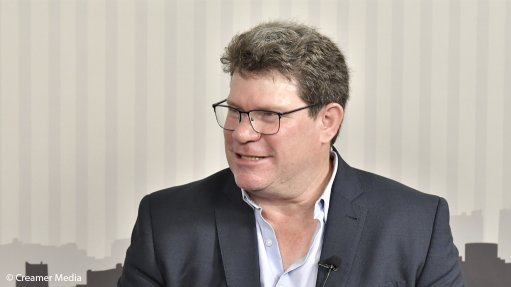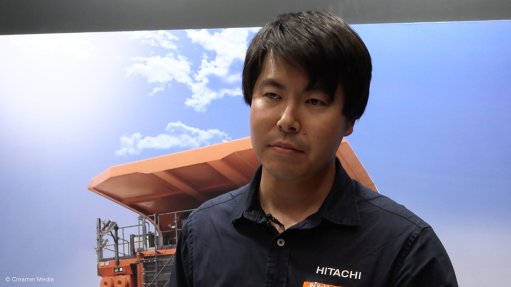Critical metals for low-carbon economy being studied across 12 universities

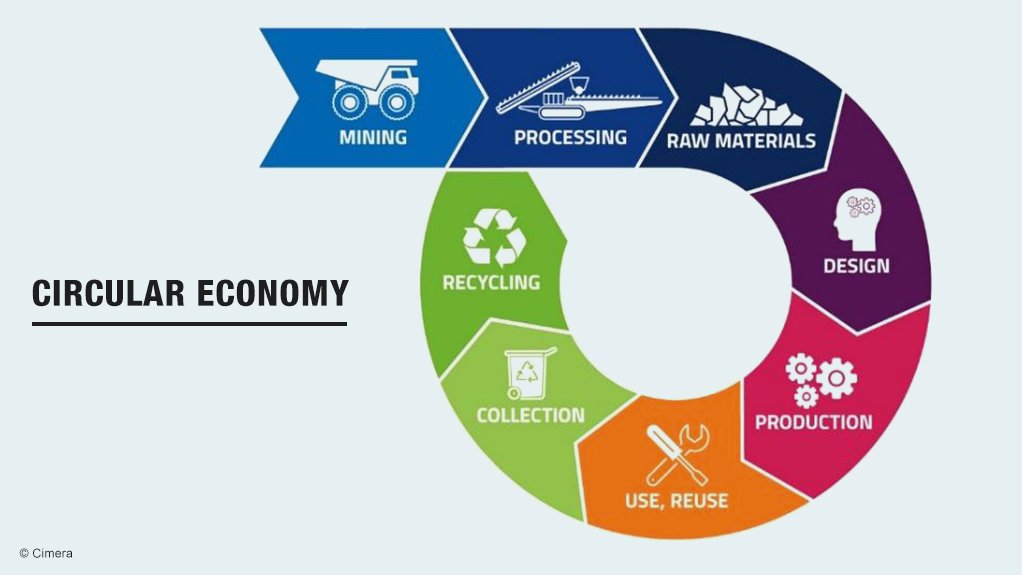
Cimera's Professor Judith Kinnaird interviewed by Mining Weekly's Martin Creamer. Video: Darlene Creamer.
Cimera placing strong emphasis on the circular economy.
JOHANNESBURG (miningweekly.com) – A consortium across a dozen South African universities has the spotlight on critical metals for a low-carbon future.
At a time when the mining world is focused firmly on the availability of critical metals to arrest global temperature increases, South Africa’s Centre of Excellence for Integrated Minerals and Energy Resource Analysis (Cimera) is supporting something like 70 research projects across the universities.
How to find more of certain commodities, understanding where the metals came from, grasping the geometallurgy of getting the metals out of commodities, and tackling the value chain from extraction to processing, are focus areas of students, who are given the opportunity to do an MSc or PhD or a postdoctoral research fellowship.
“We're upskilling the population of geologists who will meet the needs of the future, particularly understanding the Fourth Industrial Revolution and the handling of big data,” says Professor Judith Kinnaird, the Visiting Professor of the School of Geosciences, and the co-director of Cimera at the University of the Witwatersrand, who spoke to Mining Weekly in a Zoom interview. (Also watch attached Creamer Media video.)
“We’re a consortium across 12 universities. Cimera is jointly run by myself at Wits but the major centre is run by my colleague, Professor Nikki Wagner, out of the University of Johannesburg."
Memoranda of understanding have been signed with South Africa’s Council for Geoscience and various industries and further partners are actively being sought and welcomed.
In addition to highlighting the necessity of more mining to meet the needs of a future low-carbon economy, Cimera is also strongly emphasising the need for the world to recycle more and to design products for reuse to help ensure a sustainable future.
Mining Weekly: We hear a lot these days about critical metals for a low-carbon economy – but what is meant by critical metals?
Kinnaird: Critical metals are simply those metals that are critical to the economy of any particular country. If you're making something like cars, the metals that are critical to your economy might be different from another country whose main output is computers. But what makes a metal critical are several factors, one being the actual availability of supply. For instance, 90% of all platinum group elements come from South Africa, which produces just over 70%, Russia at 12% and Zimbabwe at 7%, so 90% of our platinum group elements come from three countries.
The other factor that makes something critical is the political stability of the country. Another factor that makes something critical is if it's mined as a minor commodity of something like zinc, for instance. If we wanted gallium, if we stopped mining zinc, where's that gallium going to come from? Other factors, such as the grade of the metal and the difficulty of processing, all lead towards criticality. We know things have been critical right from early humankind, when we went through the Stone Age, the Bronze Age, the Iron Age, the coal and steam industrial age and now, recently, the petroleum age.
What, in your view, can Africa contribute to what is needed when it comes to critical metals?
Africa can produce quite a lot for global needs. Africa can contribute platinum group metals from the Bushveld Complex, but for batteries, we can produce lithium from Zimbabwe, from Namibia and, going into the future, we’ll be producing lithium from the Democratic Republic of Congo (DRC) and Mali. Cobalt is a very important material and 70% of the world's supply comes from the DRC but here we have the perception that there's child labour involved and that obviously causes issues. We produce vanadium from the Bushveld Complex from the rocks above where the platinum group elements are. We can produce nickel and graphite so we can make a major contribution to the economy in going into the future for a low-carbon society.
It seems that lithium and rare earths are highly critical. Why is this?
Lithium’s been mined for a long time as it's used in ovens to tableware, lithium ceramics, but what makes it very important and critical at the moment is that it's used in lithium-ion batteries for car energy. Lithium is produced in a limited number of countries and there are worries that as we go into the future, supplies of lithium might run out. Also, lithium is only processed in a couple of countries, so we’re reliant on supply.
Rare earths are even more particular because 90-odd percent of the world's rare earths come from China. There are 15 rare earth elements and each has a different particular use. For example, one of the rare earths called europium is used in our televisions to make the colour red. But the 15 rare earth elements can be divided into two groups, light rare earths and heavy rare earths. The light rare earths are abundant but it’s the heavy rare earths that are much less common, that are needed for our critical technology metals. These rare earths are used in wind turbines, in magnets, in computers, in a complete range of technological things, so they’re incredibly important, but we worry about the world's supply of them.
If the world moves to battery electric vehicles, where will demand arise for platinum and palladium?
Well, yes, that is the case. Obviously, something like 70% of our platinum, palladium, rhodium go into catalytic converters at the moment. Certainly, if we all went electric, that would reduce the requirements for these platinum group elements considerably. However, we also need platinum group elements in glassmaking, as engineering catalysts for cracking long chain hydrocarbons and even for drugs for cancer. But going forward, I don't think we will go to complete electric car economy because of the fact that well, let's face it in South Africa, we haven't even got enough electricity at the moment to keep the industry and the home lights burning. So, I don't think that we're going to have a complete economy of lithium. We will I think move towards hydrogen-powered vehicles, where you use hydrogen produced from the atmosphere, and then you'll burn it with oxygen and you'll just produce water. At the end of that, you will have a need for the platinum group elements more so than are in cars at the moment.
What are the implications for the mining industry?
This is going to be huge. A World Bank report in 2020 states there will be much more mining needed to meet the needs for this low carbon economy. But there's a number of things that are going to be important as well. Things like vertical integration. Companies are going to have to take much more control and interest in the whole value chain from mine to market through mining, concentrating and processing or refining of the metal and the use of that metal. There are some new companies like KoBold Metals backed by Bill Gates, Jeff Bezos, Michael Bloomberg, and they’re taking that vertical chain very seriously. It means that mines will need to be much more mindful of environmental, social and governance things for the future, and many companies will be finding out where their sources are to be able to assure their customers that they're not using cobalt from child labour, or they're not using various other things that have been produced in a rather dodgy fashion.
There's going to be more mine-to-market logic and in the case of Robert Friedland of Ivanhoe, he has said recently that we will be more aware of where our material comes from, and people will be prepared to pay for commodities that have been ethically sourced. I think that’s quite an important feature. Mines are going to have to mine more responsibly, not necessarily producing less waste. That's not necessarily possible. But, for instance, they could maybe create small industries that use some of their wastes maybe to make concrete bricks or whatever. Also, in many tailings, there are traces of other metals, and maybe we should be trying to get those out rather than leaving them on the tailings piles.
Have we got enough metals for a sustainable future?
That's a difficult question. The simple flippant answer is, yes, because they’re all in seawater, but we can't afford the costs of producing them from seawater. Gro Harlem Brundtland (sustainable development pioneer and former Prime Minister of Norway) said that sustainable development is meeting our needs without compromising the needs of the society of the future. One of the things that we have to do is to create more of a circular economy. We have mining, we have processing and, after that, when we have produced our material, that goes into a design, it goes into a car or a computer, and at the end of the life, we're throwing a lot of things away. For instance, how many cellphones have you had recycled? We just tend to throw them away. Yet, there are traces of half the periodic table in our cellphones, but those things are too small at our current processing costs and abilities to extract the metals back out of them.
Certainly, we will be able to extract the platinum group elements from catalytic converters, as we do now, but in terms of lithium, there are very few places around the world that are capable of reprocessing lithium. At the moment when lithium is used, it's not going back in a circle. We are making a gap in the circle when we throw things away, so we have to recycle much more. David Attenborough says he hopes that we're going to become the generation of sustainability where we do close the gap. If you buy a fridge or whatever at the moment, it gives you an A to F rating as to how much electricity that fridge uses. I would like to see a similar rating for the recyclability, A for good and F for a fail, sort of thing. But it does mean that we're going to have to completely rethink our design of equipment and of products so that we make them more recyclable. It's up to us really to complete the circular economy and make sure that there is enough material for a sustainable future. (Also see attached graphic.)
Article Enquiry
Email Article
Save Article
Feedback
To advertise email advertising@creamermedia.co.za or click here
Press Office
Announcements
What's On
Subscribe to improve your user experience...
Option 1 (equivalent of R125 a month):
Receive a weekly copy of Creamer Media's Engineering News & Mining Weekly magazine
(print copy for those in South Africa and e-magazine for those outside of South Africa)
Receive daily email newsletters
Access to full search results
Access archive of magazine back copies
Access to Projects in Progress
Access to ONE Research Report of your choice in PDF format
Option 2 (equivalent of R375 a month):
All benefits from Option 1
PLUS
Access to Creamer Media's Research Channel Africa for ALL Research Reports, in PDF format, on various industrial and mining sectors
including Electricity; Water; Energy Transition; Hydrogen; Roads, Rail and Ports; Coal; Gold; Platinum; Battery Metals; etc.
Already a subscriber?
Forgotten your password?
Receive weekly copy of Creamer Media's Engineering News & Mining Weekly magazine (print copy for those in South Africa and e-magazine for those outside of South Africa)
➕
Recieve daily email newsletters
➕
Access to full search results
➕
Access archive of magazine back copies
➕
Access to Projects in Progress
➕
Access to ONE Research Report of your choice in PDF format
RESEARCH CHANNEL AFRICA
R4500 (equivalent of R375 a month)
SUBSCRIBEAll benefits from Option 1
➕
Access to Creamer Media's Research Channel Africa for ALL Research Reports on various industrial and mining sectors, in PDF format, including on:
Electricity
➕
Water
➕
Energy Transition
➕
Hydrogen
➕
Roads, Rail and Ports
➕
Coal
➕
Gold
➕
Platinum
➕
Battery Metals
➕
etc.
Receive all benefits from Option 1 or Option 2 delivered to numerous people at your company
➕
Multiple User names and Passwords for simultaneous log-ins
➕
Intranet integration access to all in your organisation








